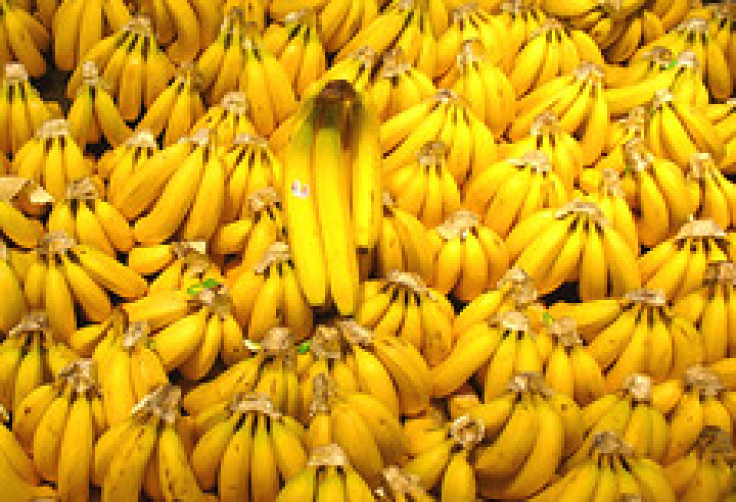Bananas Inhibit AIDS Virus?

Scientists have found a special protein in the banana that could help to prevent HIV infections during sexual intercourse. They hope this may open the door to new and cheaper treatments to prevent the spread of AIDS.
The researchers, from the US University of Michigan Medical School, have an emerging interest in lectins, a type of proteins naturally occurring chemicals in plants, because of their ability to halt the chain of reaction that leads to a variety of infections.
In laboratory tests, BanLec, the lectin found in bananas, was as potent as two current anti-HIV drugs, according to the study. Based on the findings published this month in the scientific 'Journal of Biological Chemistry,' BanLec may become a less expensive new component of applied vaginal microbicides, researchers say.
Some of the most promising compounds for inhibiting vaginal and rectal HIV transmission are agents that block HIV prior to integration into its target cell, according to the study.
The new research describes the complex actions of lectins and their ability to outsmart HIV. Lectins are sugar-binding proteins. They can identify foreign invaders, like a virus, and attach themselves to the pathogen.
The researcher team discovered BanLec, the lectin in bananas, can inhibit HIV infection by binding to the sugar-rich HIV-1 envelope protein, gp120, and blocking its entry to the body.
Therapies using BanLec could be cheaper to create than current anti-retroviral medications which use synthetically produced components, plus BanLec may provide a wider range of protection, the US researchers say.
The problem with some HIV drugs is that the virus can mutate and become resistant, but that is much harder to do in the presence of lectins, says lead author Michael Swanson.











